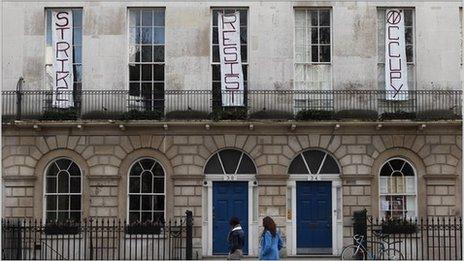When hippy squatters took over a Piccadilly mansion
- Published
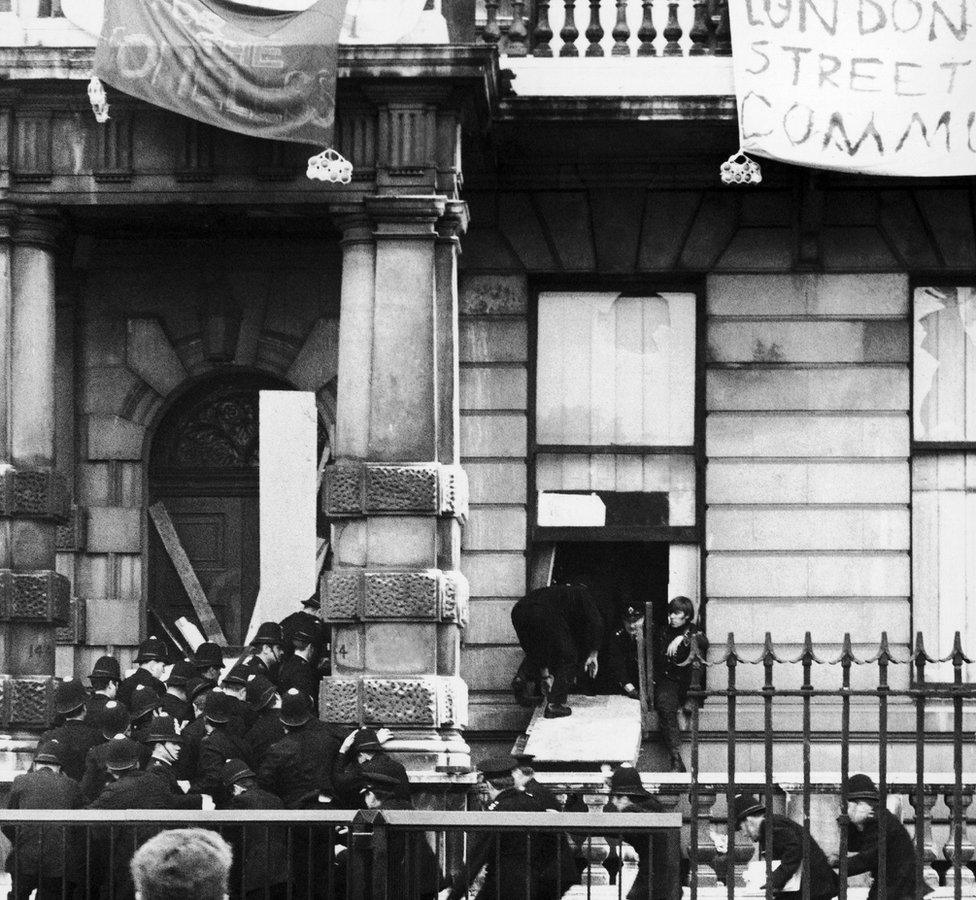
Police stormed 144 Piccadilly after the mansion had been squatted in for three weeks
Fifty years ago police stormed across a makeshift drawbridge to evict hundreds of squatters from a prestigious Mayfair address. The three-week-long occupation of 144 Piccadilly had symbolised the stand-off between mainstream society and 1960s counter-culture and made headlines around the world.
By the time several hundred "unwashed Hippies" decided to make it their home, the 100-room mansion in London's West End had stood empty for years.
While squatters had been taking over derelict properties in central London for years, this was a prime address in the heart of establishment London. Next door to 144 was another mansion where the Queen had spent the first five years of her childhood.
After a decade in which rock music, drug-taking and radical political ideas had become increasingly prevalent, to some the occupation symbolised the final breakdown of society.
Reporters on a British Pathé newsreel from the time refer to the squatters as "scroungers and drop-outs" who "thought they could snub the conventions of decent society… doing the real homeless a disservice".
"It sort of dramatised a lot of the public's fears about the counter-culture, the alternative society," says Phil Cohen, now an emeritus professor at East London University but then the squatters' leader and known as "Dr John".
"It was something that was beyond their control, and [represented] a whole generation of people who were against their society."
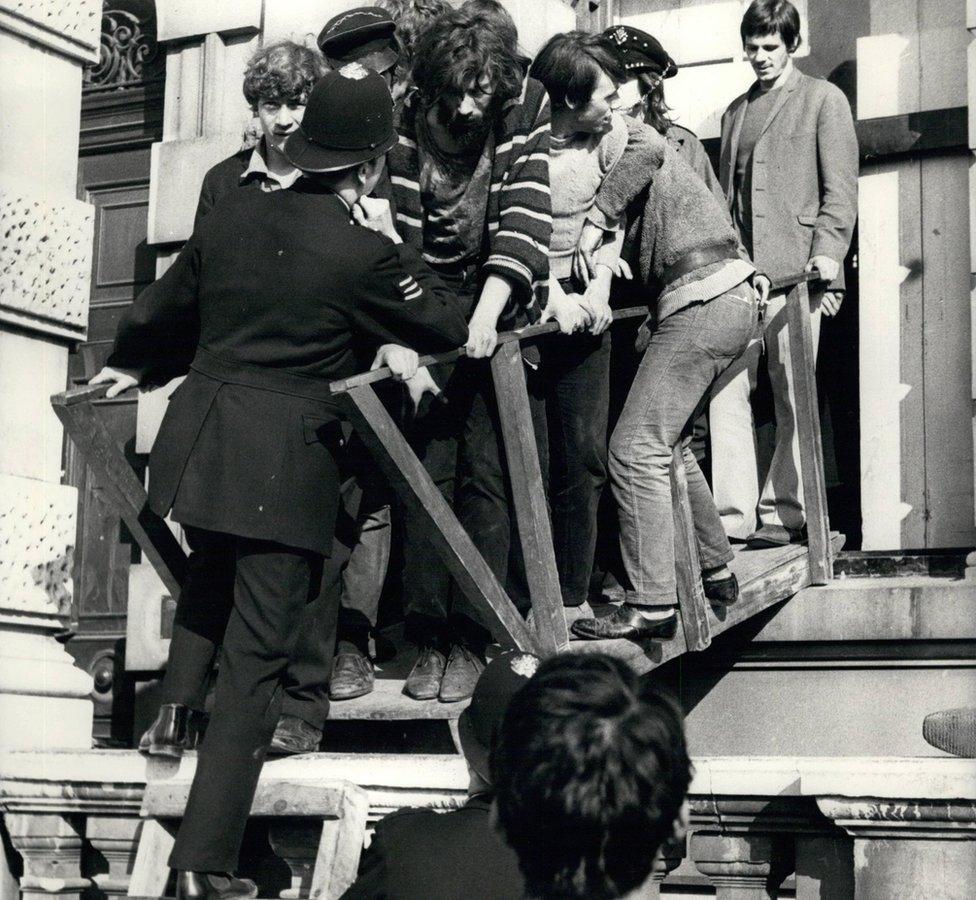
A police sergeant talks to Dr John, seen here in a stripy jumper, on the improvised drawbridge at 144 Piccadilly
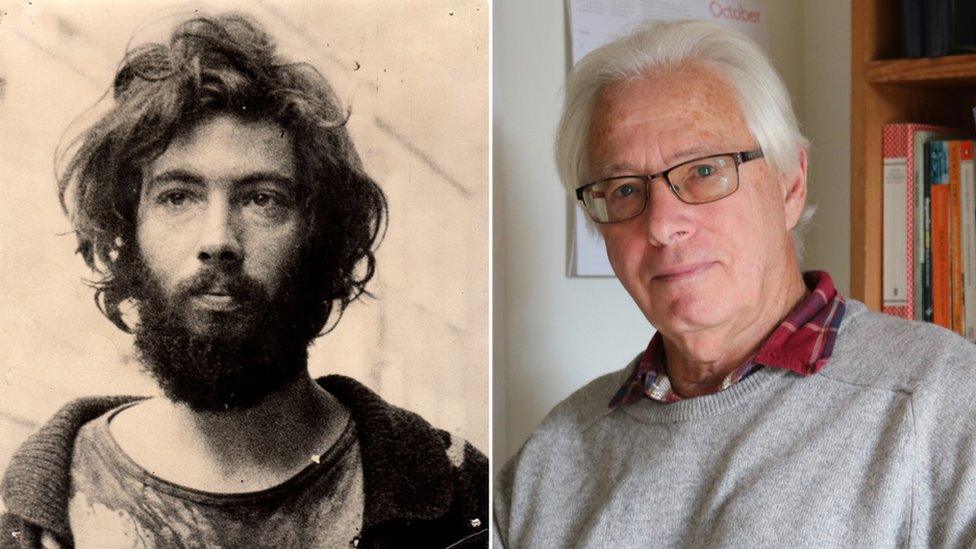
Dr John, alias Prof Phil Cohen
The squat was the culmination of an alternative movement that had, for several years, taken advantage of the capital's large number of empty properties.
The demolition of war-damaged properties and general slum clearances had created a housing shortage. At the same time, there were areas of planning blight as owners deliberately left properties empty until their development value increased. The law at the time allowed disused buildings to be used as emergency shelter for the homeless.
Squatters would make the most of this legal leeway, moving on to another property - often around the corner - if the bailiffs arrived.
A "derry" - slang for a derelict building - offered an option to young people seeking an alternative to the "taxpaying nine-to-five" lifestyle, says Prof Cohen.
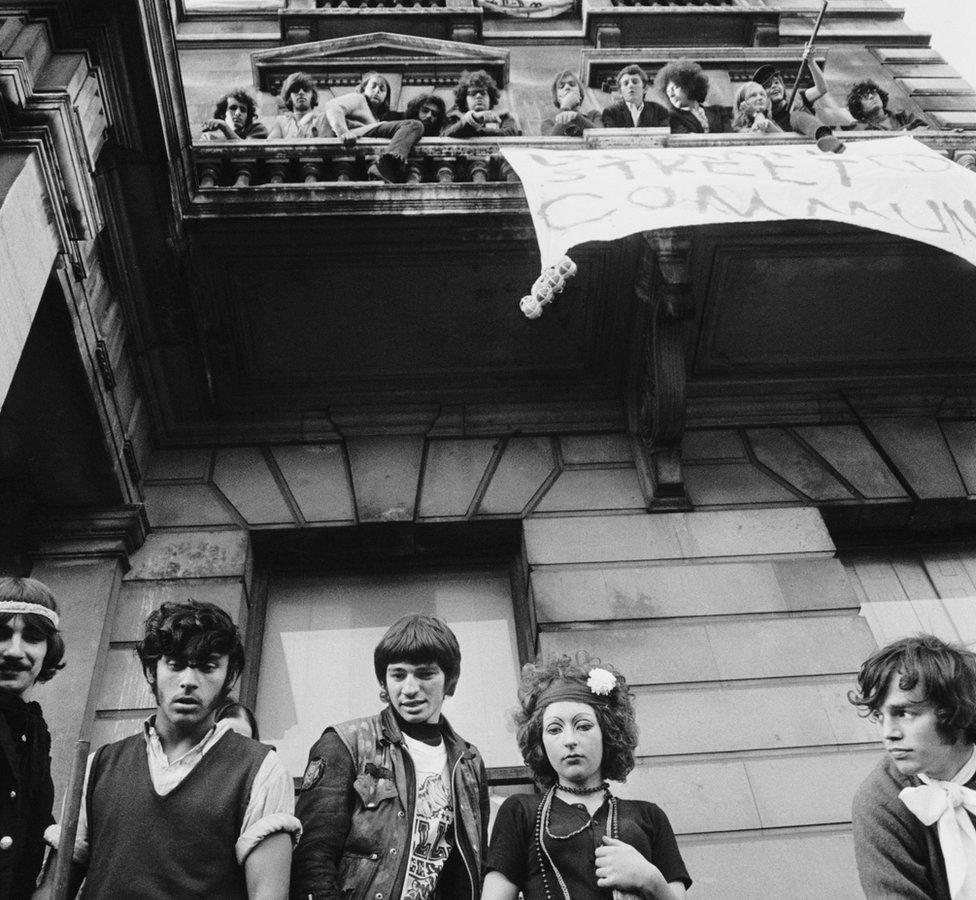
The squat received widespread media coverage
To protect themselves against the threat of eviction, some decided to organise. The resulting group became known as the London Street Commune (LSC).
It was the LSC that broke into 144 Piccadilly in September 1969. They barricaded the doors and installed a makeshift drawbridge through a ground-floor window over the dry moat that surrounded the building. Word spread and hundreds of young people who hung around the West End, including runaways, ex-borstal kids, rent boys and drug dealers, moved in.
The house soon became known as "HippyDilly".
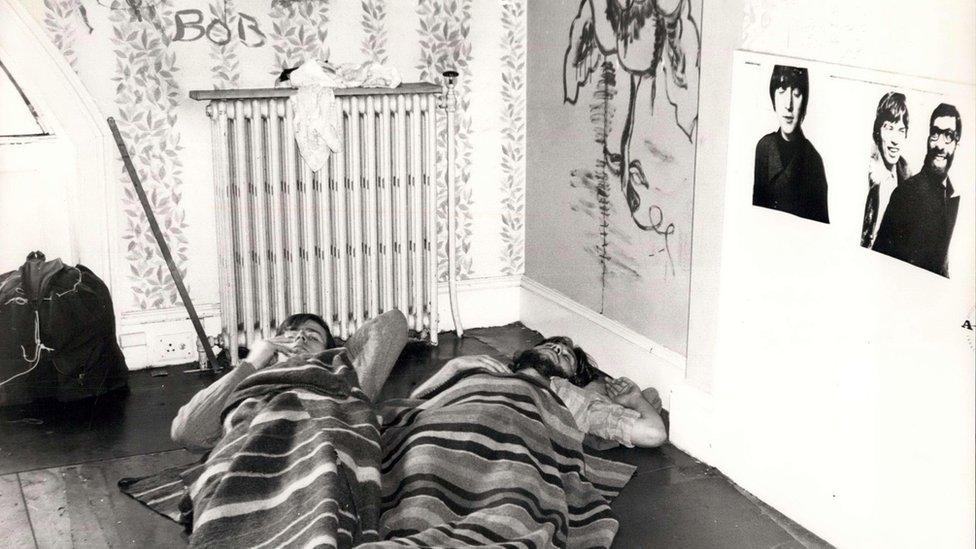
Squatters would sleep in the old servants' quarters
"It was an extraordinary place - it was palatial," says Prof Cohen.
The squatters would sleep in the mansion's extensive servants' quarters, while house meetings were held in one of the two large ballrooms.
Inside, there was a degree of organisation. People would be tasked with various roles, including sourcing food from sympathetic catering staff at nearby restaurants and hotels.
As fascination and media coverage grew, onlookers would turn up, with some chanting: "Monkeys, get back to the zoo."
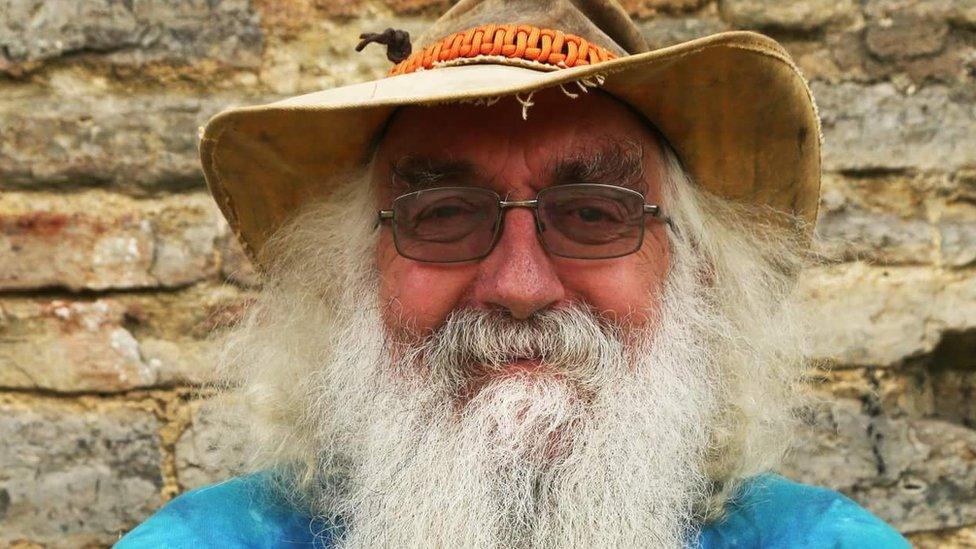
Eddie Doughton remembers the 100-room mansion as "a good place to kip"
Newspaper reporters were an almost constant presence outside. Gangs of skinheads would also gather but were faced by the squatters' "security" - Hells Angels stationed at the mansion's drawbridge.
Eddie Doughton, a 19-year-old anti-war poet who had quit his job at the Admiralty after realising he was "part of the war machine", was among the residents.
He remembers it as "a good place to kip" that became "way bigger than it was supposed to be".
"Famous people were coming and going in legion numbers," he adds. "They just wanted to be seen to be hip. Actor Oliver Reed floated in, got his picture taken, then left."
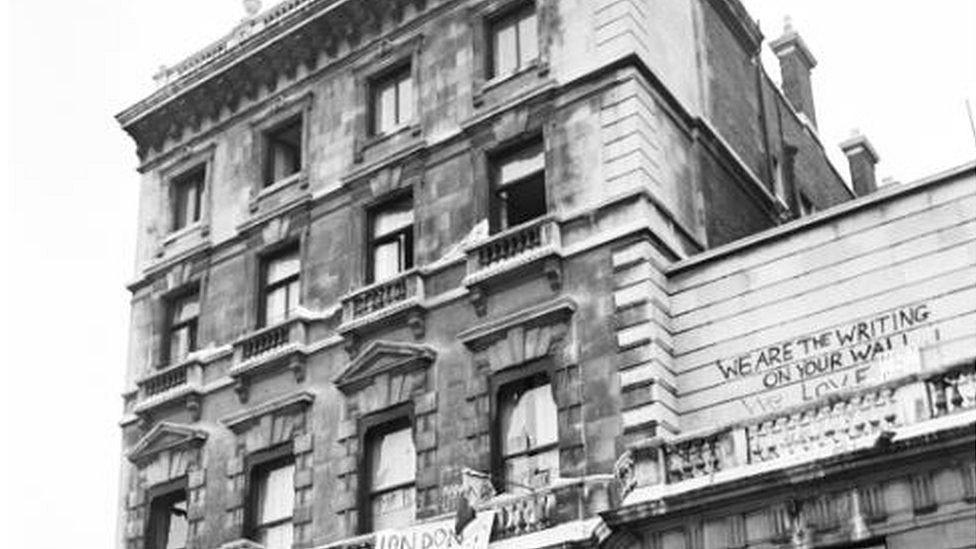
"We are the writing on your wall" was a slogan painted on 144 Piccadilly that irritated the establishment, according to Prof Cohen
Many of those squatting were motivated by radical politics, but some were more interested in partying and staying somewhere rent-free.
"We were a bunch of stoners, mate - Phil [Cohen] was the agitprop," says Richie Gardener, another squatter who went on to be a roadie for the likes of Paul McCartney and Nina Simone.
Now 67 and living in Hay-on-Wye, on the Powys-Herefordshire border, he says his time in squats was the making of him.
"You walk away from the streets knowing you are going to be OK, you can survive anything."
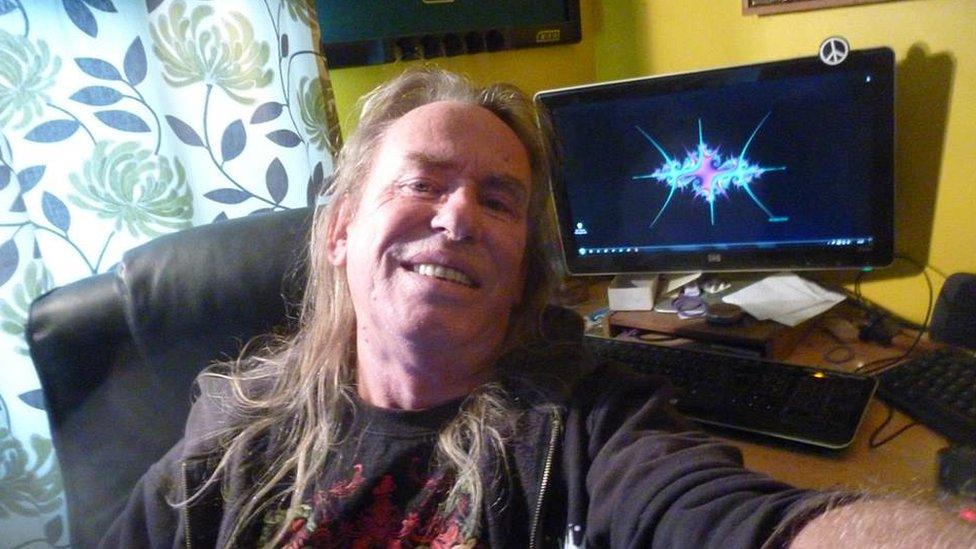
Richie Gardener says living in squats was the making of him
Prof Cohen agrees many just wanted to "enjoy their puff and their music", but he maintains the squat had a political aim.
"We were acting as sort of urban guerrillas," he says. "The city could belong to us, belong to everybody, it didn't just belong to the rich."
He would tell reporters stationed outside that the group wanted to become a "real people's forum, a resistance movement against all the institutions, like the family, schools, detention centres, borstals".
However, the scale and location of the squat led to a media-organised moral panic, he says.
"There was the idea that your property was no longer sacrosanct. Actually, I remember one of the newspaper headlines - 'What to do if hippies come to your house tonight'.
"Somehow there was this new generation that had come out of nowhere. It was outside the family, it was even hostile to the notion of the family.
"It couldn't be controlled and your own kids could run away and join us."
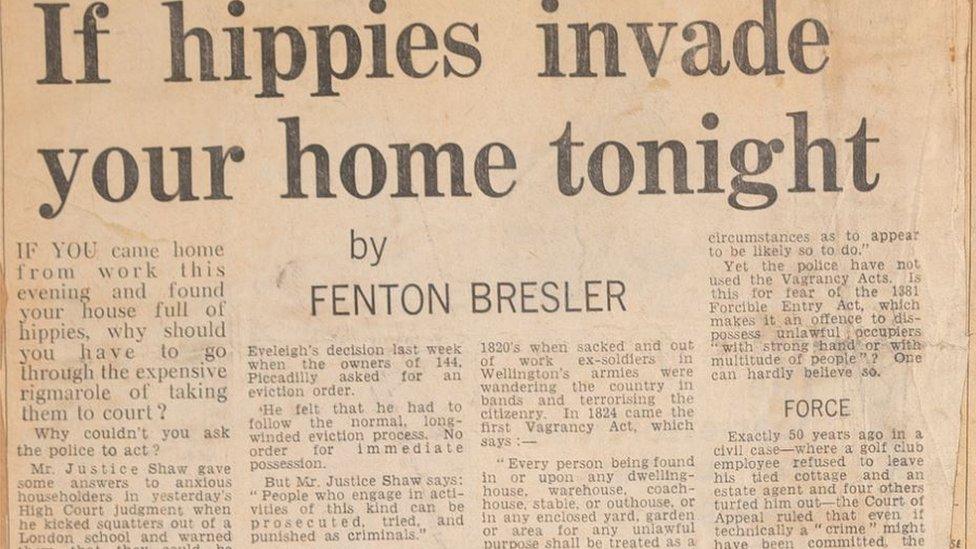
Newspaper coverage of the squat was generally negative and sensationalist
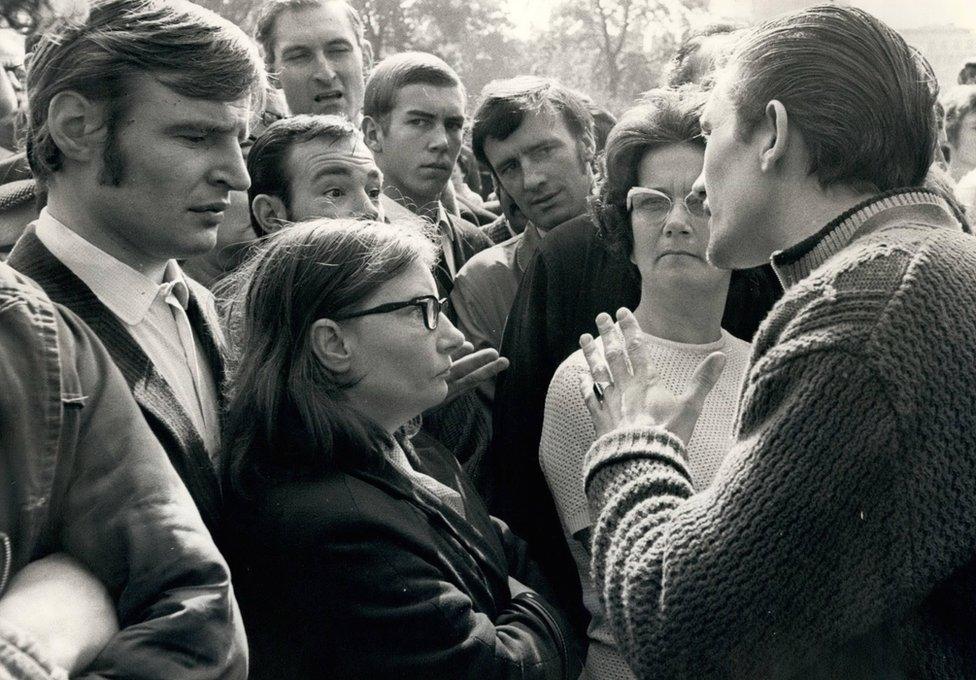
One of the squatters during an argument with members of the public outside the building
So, on 21 September, after the squatters had ignored an eviction order and remained inside the mansion for three weeks, 144 Piccadilly was successfully raided by police.
Officers persuaded the squatters' security to allow them over the makeshift drawbridge to attend to "an ill pregnant woman inside".
Once inside, they let their fellow officers in and the house was soon under the control of the authorities.
"There was rubbish everywhere. People had written on the walls and things like that," says Graham Harris, the Under-Sheriff of London, who went into the building after the police stormed it.
The occupants, most of whom decided not to resist, were evicted. Despite all the arrests, very few were charged.
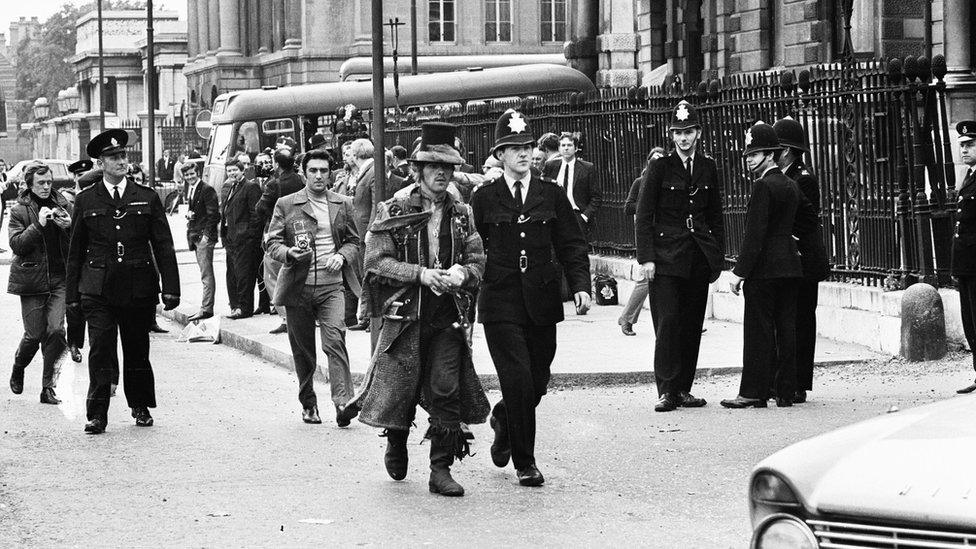
A top-hatted hippy is led away by a policeman after police stormed 144
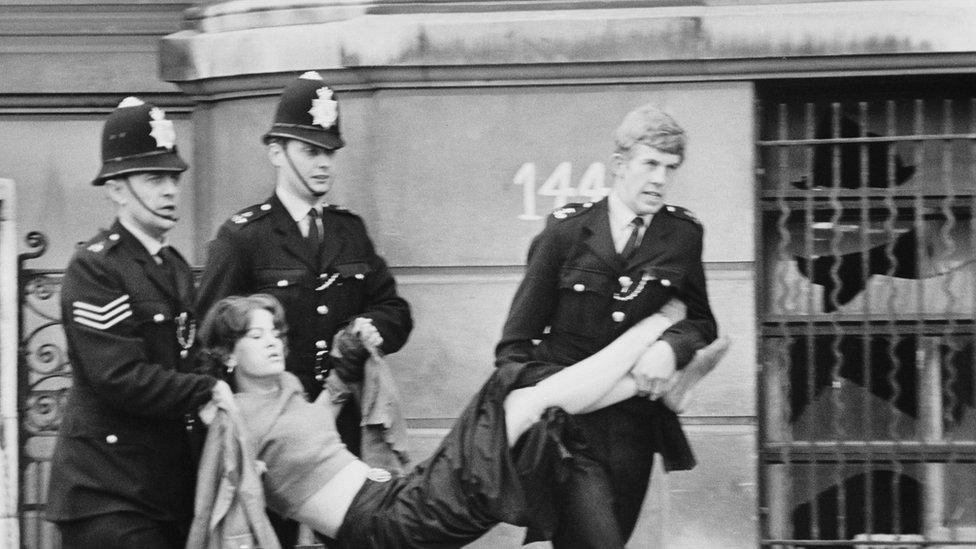
Police officers evicting a woman from the squat
Prof Cohen and other LSC members moved into another squat, about a mile away, on Endell Street. He later returned to his studies at a university in London.
A luxury hotel now stands in the place of 144 Piccadilly, which was demolished in the 1970s.
The LSC revolution may not have come about, and widespread squatting is also a thing of the past, but the issues around the availability and affordability of housing have not gone away.
Previously a civil matter, in 2012 it became a criminal offence to squat in residential properties.
Prof Cohen, who eventually rented a housing association flat where he still resides, says squatting is not a viable option for today's homeless.
"People who become homeless are, on the whole, isolated. They don't have the same kind of support structures, the same kind of network that would enable them to take collective action.
"It's much, much more difficult now. The whole thing has been criminalised."
- Published18 September 2019
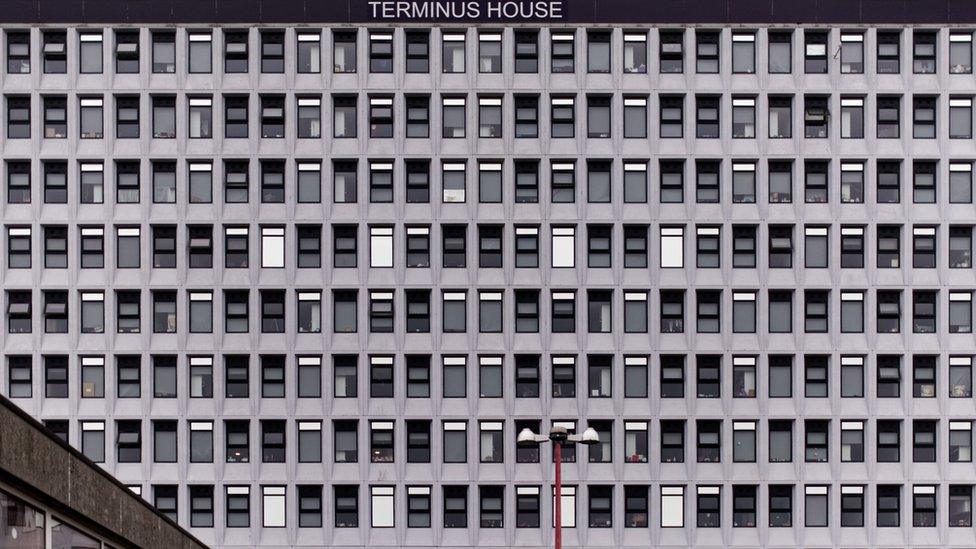
- Published6 July 2011
